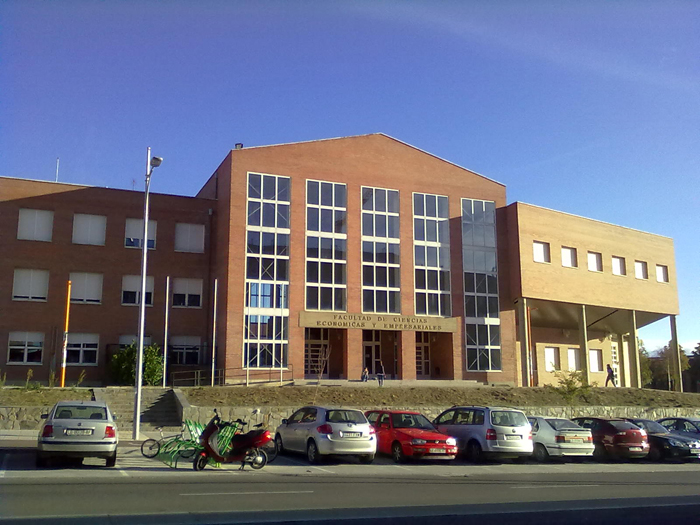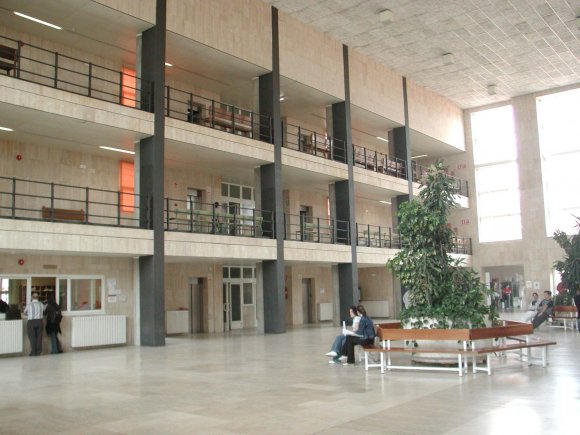
How Ukrainians affected by war can continue their studies in Europe: 100 places for Ukrainian students at universities in Castilla y León in Spain
Since Russia’s full-scale invasion of Ukraine began on 24 February, 2022, many Ukrainian students have been forced to leave their homes and places of study and look for new opportunities to continue their education. In response, many European universities have offered their support to Ukrainian students by enrolling them on their courses, reducing or waiving tuition fees, and providing scholarships.
In this blog, four Ukrainian Young European Ambassadors (YEAs) affected by war share their experience, why they have decided to continue their studies in Europe, where they found their desired programmes, how the application process worked, and what their studies are like now. They were interviewed by Ukrainian YEA Vladyslava Vertogradska during the week of April 4-10, 2022. She is a fourth-year student majoring in Contemporary Communication at LCC International University in Klaipeda, Lithuania. Originally, she is from Donetsk, but her family moved to Ivano-Frankivsk in 2014 due to the Russian occupation of the territory. Currently, she is finishing her last semester at the university, while volunteering for a Kyiv-based organisation that translates news into English and carries out fact-checking.
Meet the first heroine of these blog stories – Vitalina Shevchenko. She is a fourth-year student majoring in International Economy at V. N. Karazin Kharkiv National University. Since this is her final year, she will obtain her bachelor’s degree diploma this summer. “During the first two weeks of the Russian invasion of Ukraine, I was in Kharkiv and was thinking only about how to survive, what to do, how to keep my family safe,” Vitalina said. As the head of the Student Council at her university, Vitalina was also among those helping students by providing humanitarian aid, assistance in evacuation from Kharkiv, and helping them to find free accommodation in Western/Central Ukraine. While describing her experience of war, Vitalina said she was lucky to have a lot of friends all over the country: “As soon as my family and I managed to flee the city, our trip took 5 days – every night, my family and I spent at one of my friend’s places. I spent a week in Western Ukraine, also at our friend’s house. There I started thinking about my future, and education was one of the main issues.”
“I realised that one of my priorities in those days was continuing my education,” said Vitalina. This is why she decided to look for available educational opportunities that might suit her. From March 28, Vitalina’s home university, V. N. Karazin Kharkiv National University, was working in online mode, which meant she could in some way continue with her degree. “However, I found the opportunity to make an exchange extremely useful and appropriate under the circumstances that all Ukrainians live in these days,” she said.
She found out that four universities from Castilla y León region in Spain were welcoming Ukrainian students. Universidad de León, Universidad de Burgos, Universidad de Salamanca, and Universidad de Valladolid offered a total of 100 places for Ukrainian students to receive their bachelor’s, master’s, and doctorate degrees during this semester. “I sent emails to several universities and I was accepted,” said Vitalina. The list of necessary documents included passport, university registration, academic transcript, municipal registration, and language certificate (if there is one).
“And here we are, I am an Erasmus student at Universidad de León!” she stated. Vitalina arrived in León last week and has just started her classes at the new university. She continues with her bachelor’s degree in International Economy in the Faculty of Economics and Business, with Spanish as a working language. However, it is possible to choose and follow courses in English.


Universidad de León has various faculties and also provides an opportunity to study in English. “They provide us with education, accommodation, and grants for living expenses. Each student receives a monthly allowance for general expenses, varying from €250 to €500. Everyone is always ready to help and answer any questions Ukrainians might have,” Vitalina added.
Her journey to Spain was long and exhausting. Vitalina went from Ukraine to Poland, then Italy, and finally arrived in Spain. Along the way, she took trains, cars, and planes. “However, it was definitely worth it,” she said.
Vitalina urged Ukrainian students to try out different youth and educational opportunities in the European Union, as “these days EU universities support Ukrainian students as never before, so do not hesitate to email them and take your opportunity to obtain a degree in the EU”.
LATEST

How you can help the planet every day

Building Europe: Poland’s experience of joining the European Union and lessons for Ukraine

World Health Day 2024: My Health, My Right

EUREKA MEETS EUROPE – opportunities to develop and study. My experience

Can you wear pink in the workplace?
More campaign pages:
Interested in the latest news and opportunities?
This website is managed by the EU-funded Regional Communication Programme for the Eastern Neighbourhood ('EU NEIGHBOURS east’), which complements and supports the communication of the Delegations of the European Union in the Eastern partner countries, and works under the guidance of the European Commission’s Directorate-General for Neighbourhood Policy and Enlargement Negotiations, and the European External Action Service. EU NEIGHBOURS east is implemented by a GOPA PACE-led consortium. It is part of the larger Neighbourhood Communication Programme (2020-2024) for the EU's Eastern and Southern Neighbourhood, which also includes 'EU NEIGHBOURS south’ project that runs the EU Neighbours portal.

The information on this site is subject to a Disclaimer and Protection of personal data. © European Union,